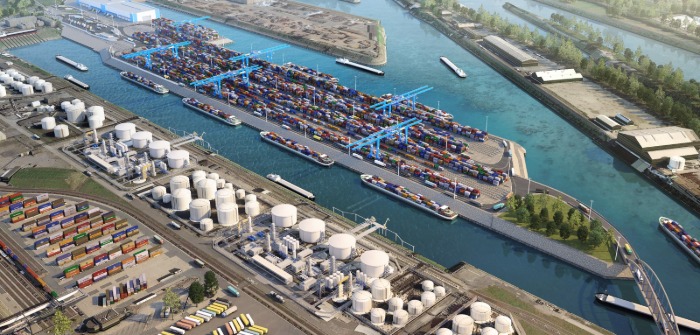The Port of Duisburg container terminal in Germany will achieve a climate-neutral energy supply through mtu hydrogen technology delivered by Rolls-Royce’s Power Systems business unit.
Currently under construction, the port will feature Rolls-Royce’s latest mtu hydrogen technology which will be utilized to supply the terminal with sustainable electrical energy and heat.
Rolls-Royce’s hydrogen-powered mtu fuel cell solutions will supply electrical power when the public power grid reaches its limit, such as when a berthed ship requires an onboard power supply or when other peak load situations occur.
Additionally, two combined heat and power plants with 4000 series mtu hydrogen engines will convert hydrogen energy into electrical energy. This will then be fed into the supply network of the container terminal or into the public grid. Waste heat will then be utilized to heat buildings within the port and surrounding areas.
At present, the Duisburg port is working with several partners to build a hydrogen-based supply network by 2023 that includes a range of advanced technologies for energy conversion and storage. The new container terminal is being built on a former coal island, and once complete, it aims to set new standards in terms of climate-friendly energy supply and cargo handling.
Photovoltaic systems and battery storage systems are also being integrated into the local supply network by port operator Duisport and several other companies. Over the next four years the project will be funded by the German Federal Ministry for Economic Affairs and Energy under the Hydrogen Technology Offensive initiative.
“Hydrogen technology is no longer a dream of the future, but hydrogen technology will prove itself in everyday use in Duisburg,” said Andreas Schell, CEO, Rolls-Royce Power Systems. “The parallel use of fuel cell solutions and hydrogen engines shows that we have taken the right path with our technology-open approach to the development of new solutions for the energy supply of the future.”



